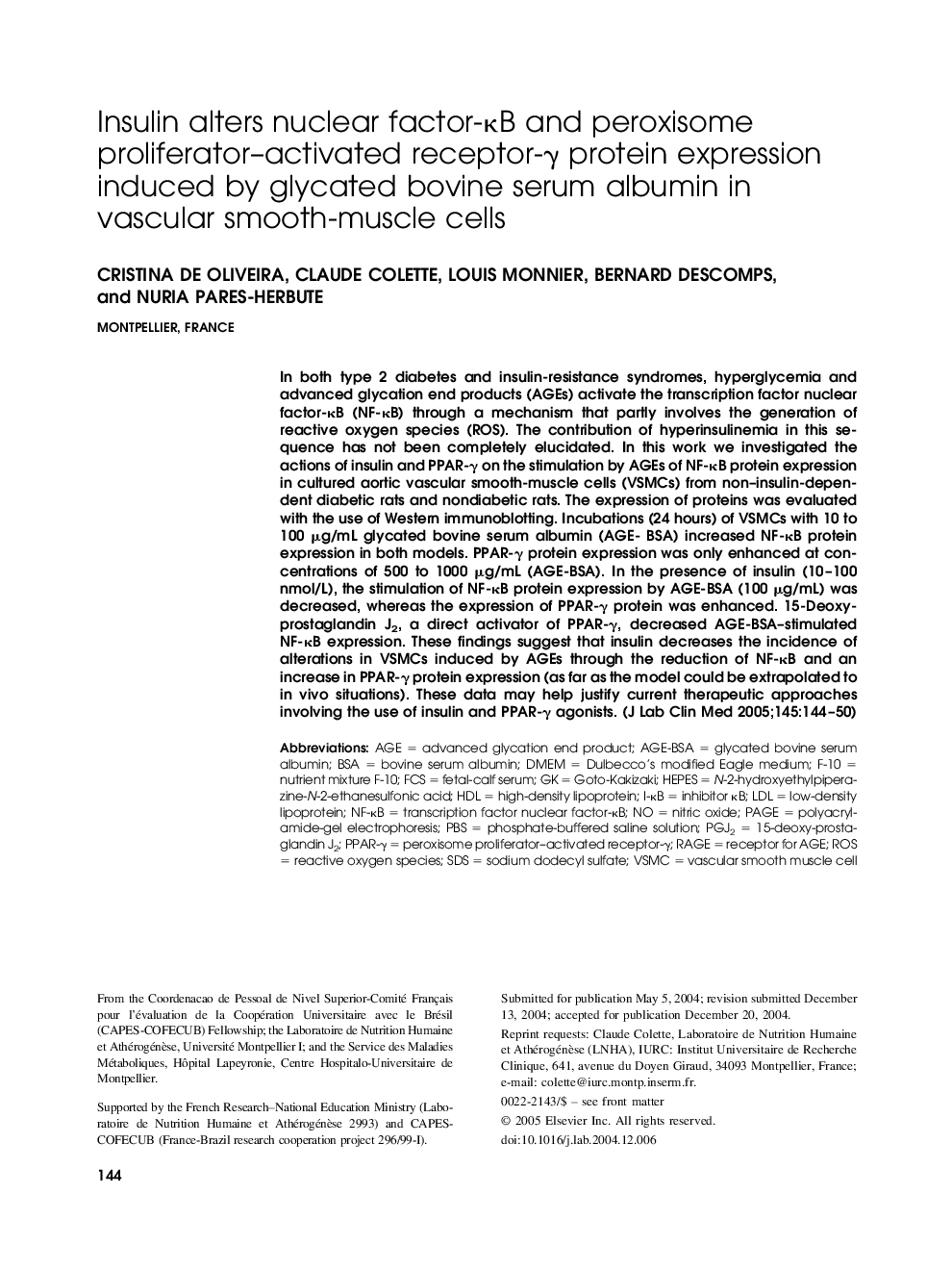| Article ID | Journal | Published Year | Pages | File Type |
|---|---|---|---|---|
| 9296454 | Journal of Laboratory and Clinical Medicine | 2005 | 7 Pages |
Abstract
In both type 2 diabetes and insulin-resistance syndromes, hyperglycemia and advanced glycation end products (AGEs) activate the transcription factor nuclear factor-κB (NF-κB) through a mechanism that partly involves the generation of reactive oxygen species (ROS). The contribution of hyperinsulinemia in this sequence has not been completely elucidated. In this work we investigated the actions of insulin and PPAR-γ on the stimulation by AGEs of NF-κB protein expression in cultured aortic vascular smooth-muscle cells (VSMCs) from non-insulin-dependent diabetic rats and nondiabetic rats. The expression of proteins was evaluated with the use of Western immunoblotting. Incubations (24 hours) of VSMCs with 10 to 100 μg/mL glycated bovine serum albumin (AGE- BSA) increased NF-κB protein expression in both models. PPAR-γ protein expression was only enhanced at concentrations of 500 to 1000 μg/mL (AGE-BSA). In the presence of insulin (10-100 nmol/L), the stimulation of NF-κB protein expression by AGE-BSA (100 μg/mL) was decreased, whereas the expression of PPAR-γ protein was enhanced. 15-Deoxy-prostaglandin J2, a direct activator of PPAR-γ, decreased AGE-BSA-stimulated NF-κB expression. These findings suggest that insulin decreases the incidence of alterations in VSMCs induced by AGEs through the reduction of NF-κB and an increase in PPAR-γ protein expression (as far as the model could be extrapolated to in vivo situations). These data may help justify current therapeutic approaches involving the use of insulin and PPAR-γ agonists.
Keywords
PGJ2VSMCRAGEFCSPAGEI-κBGoto-KakizakiAGE-BSAN-2-hydroxyethylpiperazine-N-2-ethanesulfonic acidHDLHEPESglycated Bovine Serum AlbuminSDSDMEMPBSNF-κBPPAR-γBSAhigh-density lipoproteinDulbecco’s modified Eagle mediumROSbovine serum albuminpolyacrylamide-gel electrophoresissodium dodecyl sulfateVascular smooth muscle cellAgeLow-density lipoproteinLDLphosphate-buffered saline solutioninhibitor κBNitric oxideadvanced glycation end productReactive oxygen speciesreceptor for AGEPeroxisome proliferator-activated receptor-γ
Related Topics
Health Sciences
Medicine and Dentistry
Medicine and Dentistry (General)
Authors
Cristina de Oliveira, Claude Colette, Louis Monnier, Bernard Descomps, Nuria Pares-Herbute,
